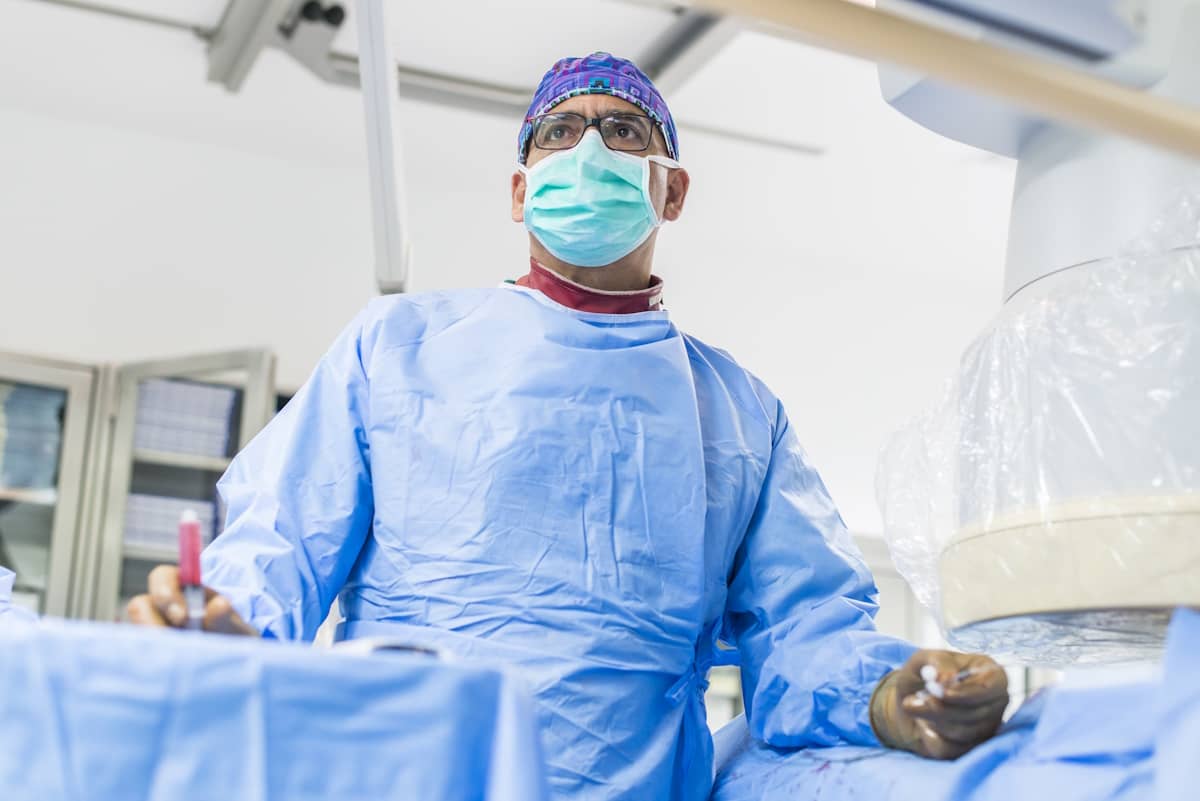Brachytherapy (also referred to as internal radiation) or radioactive seed implants are an outpatient surgery performed under anesthesia. It takes about two hours as a urologist injects forty to one hundred rice-sized radioactive seeds directly into the prostate, which remain in the body after they stop emitting radiation. The best candidates for brachytherapy are men with localized prostate cancer, meaning it has not spread beyond the prostate gland.
What is Brachytherapy, or internal radiation using radioactive seed implants
Brachytherapy, sometimes refer to as “internal radiation,” has been a very effective treatment modality over the years. Cesium-131 brachytherapy is a patient-friendly option for men due to minimal changes in urinary or bowel functioning after the treatment. It uses capsules or “seeds” the size of a grain of rice that releases a personalized dose of radiation over several days.
An advantage of brachytherapy is that it’s versatile as a complementary treatment for prostate cancer, especially following a robotic prostatectomy. After the prostate gland is removed, brachytherapy can help eliminate any remaining cancerous cells, if necessary. Other advantages of brachytherapy include the following:
- It’s a one-time procedure
- Minimally invasive
- No surgical risks
- No hospital stay
- Most of the radiation is concentrated in the prostate
With any medical procedure, including brachytherapy, there may be short-term side effects which may include:
- Increased tiredness or fatigue
- Loss of appetite
- They may have to avoid contact with children and pregnant women due to internal radiation.
- Can lead to bowel, urinary, or erectile dysfunction
- No staging information after treatment
Another drawback is if prostate cancer comes back after brachytherapy, performing surgery after radiation is challenging if at all possible. This is because the tissue surrounding the prostate can become ‘cement-like’ after being radiated. The tissue may even attach to the rectum and other tissue nearby, significantly increasing the risk of incontinence and erectile dysfunction.
What are the long-term side effects of seed implants for prostate cancer
Every man who uses brachytherapy to treat prostate cancer may have the possibility of several long-term side effects. The more common long-term side effects include difficulty passing urine or passing of urine more frequently, urinary incontinence, and erectile dysfunction. However, some men may not experience any of these symptoms. For men who do, it’s important to talk to their doctor for advice on resolving the problem.
There are lifestyle modifications that can be used to treat any long-term side effects from brachytherapy. Here’s a look at treatment:
Difficulty passing urine
Right after brachytherapy ends, men may experience difficulty in passing urine. Generally, over time, the ability to pass urine should get easier. The reason for this side effect is caused by the treatment that can narrow the urethra that extends from the bladder to the penis. Narrowing of the urethra will make passing urine difficult and is called a urethral stricture. It is essential men inform their doctor as it will require a procedure called urethral dilation. The surgeon will either use a thin rod to widen the urethra or use a tiny knife to cut away tissue to help open up the urethra.
Urinary incontinence
Some men may have urinary incontinence or urine leakage. To help alleviate this problem, men should be referred to medical professionals who can teach them muscle exercises and bladder training, or medications can be prescribed to treat incontinence.
Erectile dysfunction
Nerves that are necessary for men to achieve an erection can be damaged sometimes when brachytherapy is used. Men who are more likely to experience erectile dysfunction are men over the age of 65, have other medical conditions, have had erectile dysfunction before, or are on hormone therapy. The sooner ED can be treated the better. Men who inform their doctor of ED right away will be more successful at treatment than men who wait. The most common early treatment for ED are prescribed medication specifically for this problem that include Viagra and Cialis.
Dr. David Samadi is the Director of Men’s Health and Urologic Oncology at St. Francis Hospital in Long Island. He’s a renowned and highly successful board certified Urologic Oncologist Expert and Robotic Surgeon in New York City, regarded as one of the leading prostate surgeons in the U.S., with a vast expertise in prostate cancer treatment and Robotic-Assisted Laparoscopic Prostatectomy. Dr. Samadi is a medical contributor to NewsMax TV and is also the author of The Ultimate MANual, Dr. Samadi’s Guide to Men’s Health and Wellness, available online both on Amazon and Barnes & Noble. Visit Dr. Samadi’s websites at robotic oncology and prostate cancer 911.


